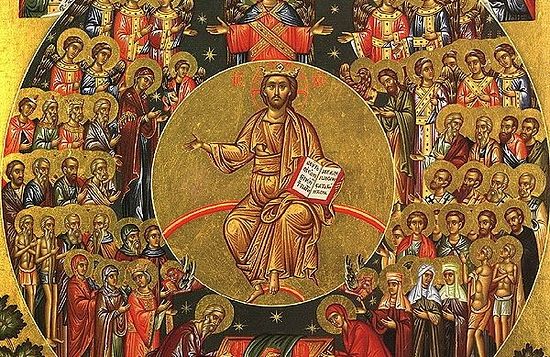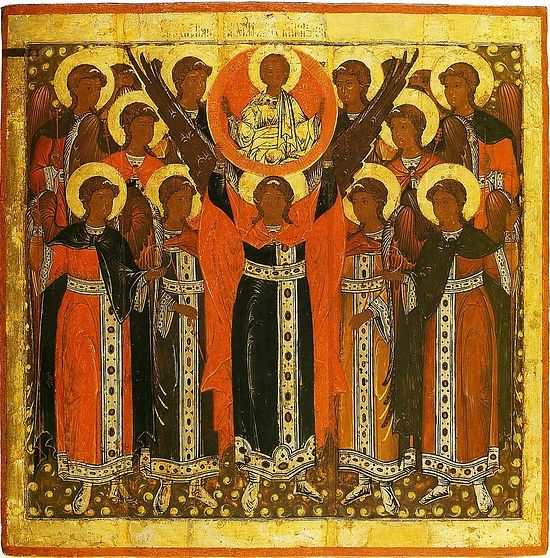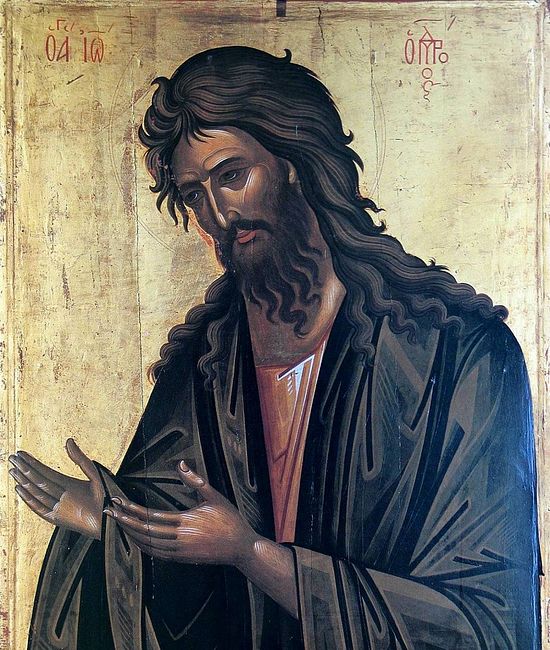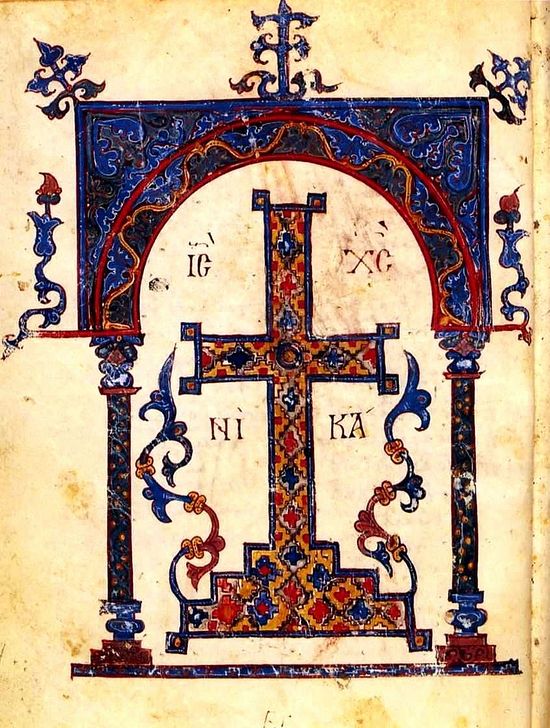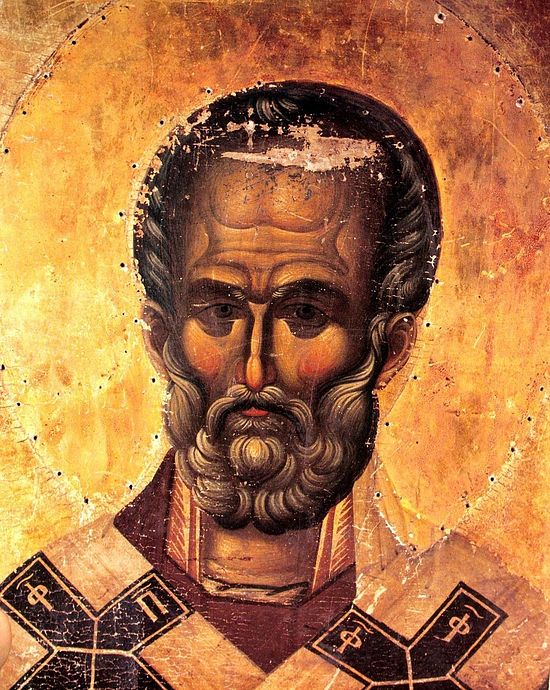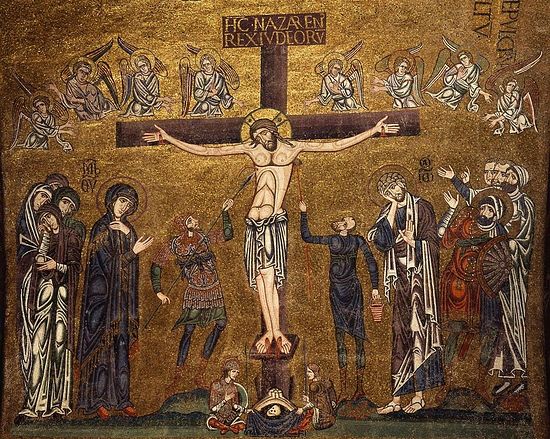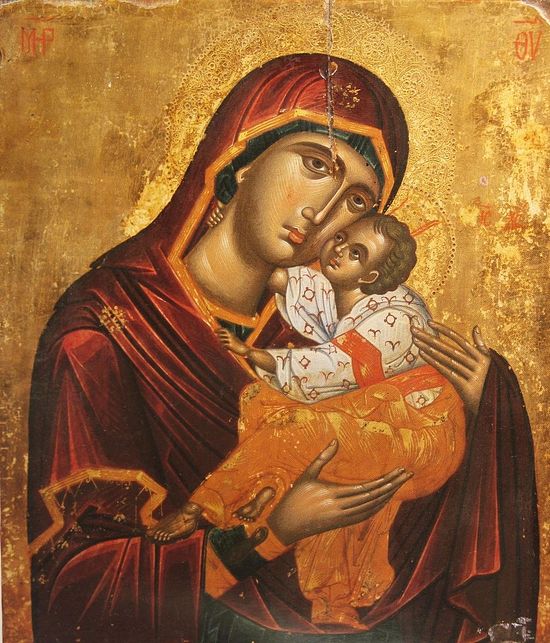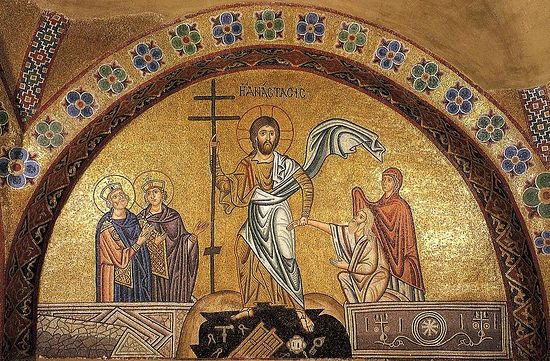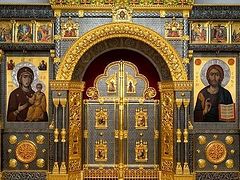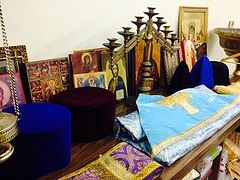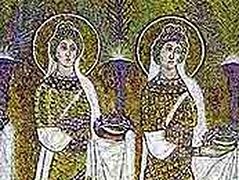Archimandrite Nazary (Omelyanenko), teacher in the Kiev theological schools, offers a clear and concise explanation of the Church’s weekly cycle.
—Father, enlighten us, please, about the special dedications of the days of the week.
—The liturgical life of the Orthodox Church is cyclical, made up of three liturgical cycles: the yearly, weekly, and daily. The yearly contains within itself movable and immovable feasts, repeating themselves year after year; the weekly consists of the seven days of the week which are dedicated to the most important events of the Savior’s earthly life and the most revered saints; the daily cycle is made up of the nine liturgical services which are repeated every day.
Thus, each of the seven days of the week has its own dedication in the Orthodox Church. Some of them, such as Sunday, Wednesday and Friday, were especially honored already in the ancient Church, and their meanings have not changed throughout the centuries. Monday is dedicated to the Heavenly Powers, Tuesday to St. John the Forerunner, Wednesday is the day of Judas’ betrayal of the Savior, and therefore the Cross of Christ is especially honored, Thursday is dedicated to the Holy Apostles and St. Nicholas, Friday is the day of the Savior’s sacrifice on the Cross, and on Saturday we especially honor all the saints, first among them the Theotokos, and we also remember all the departed. Sunday is a little Pascha—the day of the bright Resurrection of Christ, by which eternal life is granted to all mankind.
—What does it mean that Monday is dedicated to the angels?
—On Monday the Church especially honors the holy angels. This honor is expressed in the prayerful invocation of the Heavenly Bodiless Powers. During the services on Monday are heard prayers in which the faithful ask the help of their guardian angels, and all the other angels, that they might accompany our human lives and help to save the Christian soul. In the Orthodox Church there is a teaching that every Christian has a guardian angel, given to him at the Mystery of Baptism. And all of human life is closely connected with the invisible angelic world. Some pious Christians, increasing their podvigs, count Mondays as a fasting day as well. Such a practice exists in some monasteries. Monastics imitate the angels, dedicating their lives to the service of God and praising His Heavenly glory, and therefore they especially mark the day of commemorating the Heavenly Bodiless Powers.
—What does it mean that Tuesdays are dedicated to St. John the Baptist? How can we dedicate this day to him?
—On Tuesday the Church glorifies all the Old Testament righteous ones and prophets, who by their faithfulness in God made possible the coming of the Savior into the world. St. John the Baptist is the personification of faithfulness to God, righteousness, and asceticism. According to the Savior, the Forerunner is the greatest among those born of women. To dedicate this day to the saint means, above all, if you’re not familiar with his life, then inquire about the main milestones of his life and his holy podvigs. The main podvigs of St. John the Baptist are asceticism and service to God. Exploring the life of the Forerunner, every Christian sees a bright example for emulation. Therefore, dedicating the day to the saint, analyze your life and pinpoint those virtues that unite us. If you have no such virtues, then before you is a large field for spiritual activity.
—Wednesday is in honor of the Cross. How does this day differ from the others?
—On Wednesday ends the Church’s remembrance of the Old Testament and begins the glorification of New Testament events. Wednesday and Friday are days of remembrance of the sufferings and death upon the Cross of our Savior. On Wednesday Judas betrayed the Savior, and thus from this day began in reality the Savior’s sufferings. In connection with this the Cross is especially venerated as the instrument of our salvation. We keep this day throughout the whole year as a fast.
—Thursday is dedicated to the Apostles and St. Nicholas the Wonderworker. How should we conduct ourselves on this day?
—On Thursday the Church commemorates the Holy Apostles, by whose labors Christianity was established on earth. On this day we venerate the preeminent Apostles and one of the most revered saints of the Orthodox Church—St. Nicholas, archbishop of Myra in Lycia, the Wonderworker. Today practically every Orthodox parish has an icon of this great God-pleaser, and therefore veneration of this holy hierarch should be expressed not just in recollections, but in real and living prayer.
—On Friday we are to especially remember the Crucifixion of Christ? Are there special prayers in the churches on this day?
—Friday is the day of commemoration of the passion and death upon the Cross of our Savior. It is a fasting day. The Church prayerfully co-suffers and glorifies the redemptive podvig of Christ.
—Saturday is dedicated to all the saints. How ought we to keep this day?
—On Saturday we honor all the saints, first among them being the Theotokos. In the tradition of the Russian Church every Christian is named in honor of a saint. Thus, on Saturday, honoring every saint, we flee to the prayerful intercession of our saint, and to other saints near to our hearts who have no special day established throughout the week.
Christians especially pray for the repose of the dead on this day, commemorating their families, loved ones, and all reposed throughout the ages. Commemoration may be expressed in private prayer and by participation in a Panikhida, traditionally served in church on this day.
—Sunday is dedicated to the Lord. How can we spend this day properly?
—Sunday is a little Pascha. It is dedicated to the Lord and especially revered by Christians since Apostolic times. Every believer should go to church on Sundays in order to participate in the Divine Liturgy. Inasmuch as the Resurrection of Christ is the hope of all men we especially honor this day. It is best of all to spend this day after the Liturgy in charitable deeds: visiting the sick, helping those in need, and visiting the elderly. It would also behoove you on Sunday to devote a few hours to reading the Holy Scriptures and saying some prayers. It would be good to analyze the events of the preceding week (what good or bad things happened during this time) and trying to organize a specific plan of action for your spiritual life in the coming seven days. In this way, the core of the spiritual life, which is formed by a man’s participation in Church services and by moral advancement, will help a man even in difficult life circumstances not to depart from the path leading to Truth.

